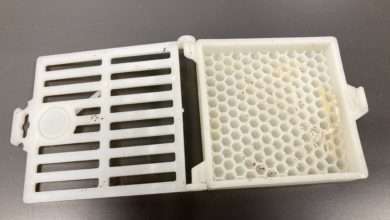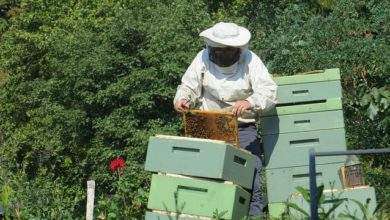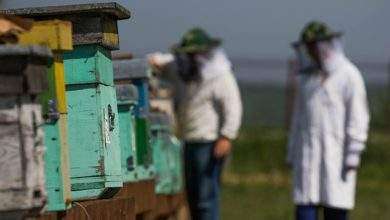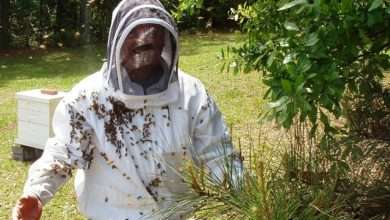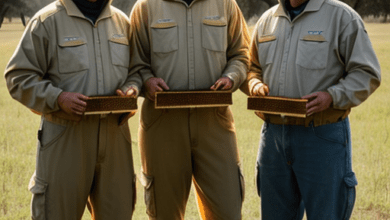Beekeepers – Want to Sell Your Beeswax?
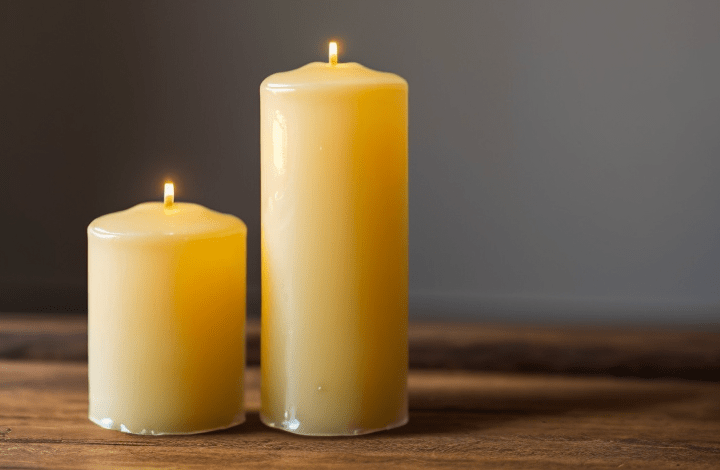
Beekeeping is a fun and rewarding hobby, and most beekeepers take great pride in their hives and the products they create. Honey, of course, is a very popular product that most beekeepers produce, but many don’t know that you can also make a profit from selling beeswax as well.
For many beekeepers, selling beeswax is highly lucrative, as it can often bring in more income than honey sales. Beeswax is an incredibly versatile product, and many places now sell it as a natural wax substitute. In this article, we will discuss why you should consider selling beeswax, and how to be successful in doing so.
What Is Beeswax?
Beeswax is a natural wax produced by bees of the genus Apis. It is used in the construction of the honeycomb, and is collected by beekeepers for many uses. Beeswax is odorless and pale yellow in color. It has a variety of uses, from cosmetic products to candle-making to wood finishing. Beeswax is also an effective waterproofing and sealing agent.
Why You Should Sell Your Beeswax
Now that you know how to sell your beeswax, you may be wondering why you should even bother doing it? The answer is simple: you can make a lot of money! With the right marketing strategy and the right buyers, you could be earning a nice passive income from selling your beeswax.
It’s also a great way to get the word out about your beekeeping business. You can create a buzz for your product and build up a loyal following of customers who are interested in buying your product. Plus, you can even give back to the environment and support bee populations with the proceeds from your sales.
The Versatility of Beeswax in Diverse Industries
Beeswax, a natural substance produced by bees for building their honeycombs, has been prized for centuries due to its remarkable properties. Its versatility has made it a valuable resource in a wide range of industries around the world. Here, we will explore the importance of beeswax and its various applications in different sectors, shedding light on the vast opportunities it offers for beekeepers looking to sell their beeswax, including wholesaling.
- Beeswax in Traditional Crafts
Throughout history, beeswax has played a vital role in traditional crafts, such as candle making, sculpture, and engraving. Its pliability, slow burn rate, and ability to retain fragrances have made it a preferred choice for artisans. From the exquisite candles in ancient temples to the intricate sculptures of renowned artists, beeswax has left an everlasting mark in the world of craftsmanship.
- Cosmetics and Personal Care Products
In recent years, beeswax has gained immense popularity in the cosmetic and personal care industry. Its emollient properties make it an excellent ingredient for moisturizers, lip balms, and hand creams, providing natural nourishment and protection for the skin. Beeswax acts as a humectant, helping to retain moisture and prevent dehydration. Moreover, its anti-inflammatory and antiviral properties contribute to soothing irritated skin and healing minor wounds.
- Pharmaceutical and Medical Applications
Beeswax’s exceptional properties extend into the realm of medicine. Within the pharmaceutical industry, it is commonly used as a base for ointments, salves, and creams due to its remarkable compatibility with other substances. Beeswax also acts as a protective barrier, shielding the skin from external influences while allowing the medication to penetrate effectively.
In addition, beeswax finds application in orthopedics, where it is used in creating orthopedic casts and molds. Its natural adhesion and malleability provide support and comfort for patients while aiding in the healing process. Beeswax-based products have also shown promise in the treatment of dental conditions, demonstrating antimicrobial activity against certain oral pathogens.
- Food and Beverage Preservation:
Curbing to its natural properties, beeswax has found its way into the culinary world as a means of preserving and providing a protective coating for various food items. From sealing and protecting cheese to coating fruits and vegetables, beeswax acts as a natural barrier against moisture loss and contamination while allowing food to breathe. Its usage in food preservation ensures extended shelf life and enhances the visual appeal of fruits and cheeses, creating an attractive glossy finish.
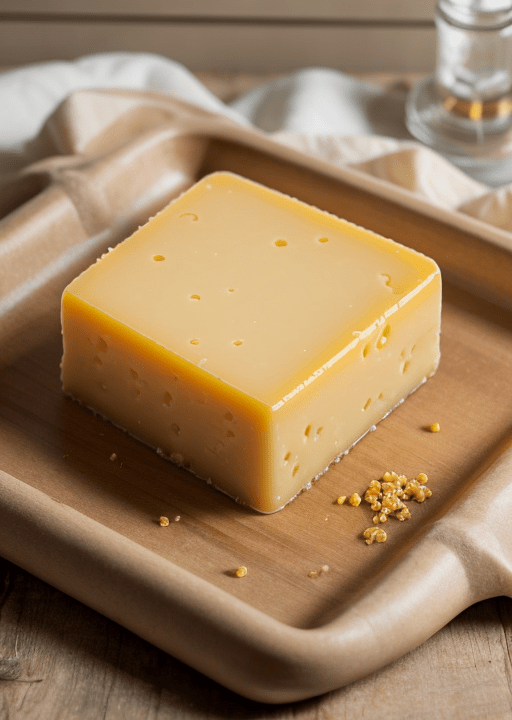
How Profitable Is Selling Beeswax?
Although not many people are aware of it, beeswax is a very profitable business to be in. Honey may be the more popular product, however, beeswax can be sold for a higher price than honey.
Furthermore, because the beekeeping business is still relatively small, it is easier to find buyers for high-quality beeswax than it is for honey.
The demand for beeswax is increasing as more people begin to recognize its many beneficial properties. Its waterproofing and sealing abilities mean it can be used for a variety of products, including furniture, boats, and car bodies. Furthermore, its antibacterial properties make it a popular addition to balms, salves, and other skin care products.
For all these reasons, as well as its increasing popularity, beeswax is a great choice for those looking to make a little extra money. Even if you only produce a small amount each year, it can be a great way to supplement your income.
The Benefits of Beekeeping for Beeswax Production
- Versatility and Demand: Beeswax is a versatile natural material that has been utilized by humans for thousands of years. Its countless applications extend from candle making and cosmetics to pharmaceuticals and woodworking. The demand for beeswax remains steady, making it a lucrative product for beekeepers to offer.
- Sustainable Byproduct: Beekeepers can take pride in the sustainable nature of beeswax production. While honey production requires the bees to consume nectar, which can deplete their resources, beeswax is merely a byproduct of their natural wax-producing glands. Harvesting beeswax does not harm the bees and helps maintain their colonies.
- Value-Added Product: Beekeepers can significantly increase their earnings by transforming beeswax into value-added products. By converting the raw wax into candles, balms, soaps, or even art creations, beekeepers can tap into niche markets and attract environmentally-conscious customers. This allows them to diversify their income streams while promoting the significance of beeswax.
The Challenges of Beekeeping for Beeswax Production
- Hive Management: Beekeepers must have a deep understanding of hive management to ensure the production of high-quality beeswax. This includes maintaining healthy colonies, managing pests and diseases, and providing the bees with suitable living conditions. Healthy and strong colonies are more likely to produce ample amounts of wax.
- Weather Conditions: Beekeeping is greatly influenced by weather patterns. Unfavorable weather conditions, such as prolonged rainfall or drought, can have a significant impact on honeybee foraging behavior and consequently on the production of beeswax. Beekeepers must be vigilant and adaptable in dealing with these unpredictable circumstances.
- Harvesting and Processing: Harvesting beeswax requires skill and care. Beekeepers need to carefully remove the wax combs from the hive without damaging them. Afterward, the beeswax must be processed to separate impurities and debris, ensuring it is of the highest quality for various applications.
Grading Beeswax
When it comes to selling your beeswax, there are a few key areas to consider. Firstly, you should grade your beeswax according to its color, smell, texture, and quality. Most beekeepers grade their beeswax into three main categories; Grade A (the highest quality), Grade B (medium quality) and Grade C (lower quality).
Ways To Market Your Beeswax
Now that we’ve discussed the demand for and profitability of beeswax, let’s talk about how to market the product. There are a few different ways to market your beeswax, from attending local markets to setting up an online shop. It is important to recognize which avenue makes the most sense for you, as this will depend on your skills and desired outcome.
For instance, if you’re just looking to make a bit of extra money, you may want to consider selling your beeswax at a local farmers market or craft fair. Selling locally allows you to connect with customers directly, and you don’t have to worry about delivery or shipping.
Alternatively, you may want to consider setting up an online shop. This is a great way to expand your reach and get your product out to a wider audience. Additionally, you can easily build up a following and start to create relationships with customers this way.
Tips For Selling Beeswax
As with any business venture, there are few tips and tricks you should consider before selling beeswax. The following are a few suggestions to ensure you have the most success with your product:
- Get the highest quality wax possible: Quality is essential when it comes to selling beeswax, as customers will not be willing to pay top dollar for a subpar product. Make sure you have the highest quality wax available to get the best return from your product.
- Package your product properly: Another important tip to ensure your success is to make sure you package your product properly. Beeswax is susceptible to moisture damage, so it is important to package it properly to ensure its longevity.
- Price your product competitively: Finally, it’s important to price your product appropriately. Do your research and see what other beekeepers are pricing their beeswax at. Make sure you meet or beat the competition to get the most for your product.
Selling Beeswax: Wholesaling
In the world of beeswax sales, wholesaling plays a crucial role in reaching a wider customer base and maximizing profits. Wholesale transactions involve selling beeswax in large quantities to individuals or businesses that will then resell the product to end consumers.
Wholesaling is the process of selling goods, in this case, beeswax, in large quantities to buyers who are typically retailers, manufacturers, or other businesses. Instead of selling individual units, wholesalers offer large quantities at discounted prices, enabling the buyers to benefit from economies of scale. This mutually beneficial arrangement allows the wholesaler to move a larger volume of product quickly, while the buyer gains access to a bulk supply of beeswax for resale.
Advantages of Selling Beeswax Wholesale
- Increased Revenue: By selling beeswax in larger quantities, wholesalers have the opportunity to generate higher revenue as compared to selling retail. The ability to offer discounted prices due to bulk purchases can attract more customers and increase overall sales.
- Greater Market Reach: Wholesaling enables beekeepers and beeswax manufacturers to expand their market reach beyond individual customers. By attracting retailers and other businesses, products can be distributed to a broader audience, potentially leading to increased brand visibility and recognition.
- Streamlined Distribution: Selling beeswax wholesale reduces the complexity of distribution channels. Instead of managing numerous individual customer transactions, wholesalers can focus on a smaller number of bulk transactions. This streamlined process allows for more efficient inventory management and order fulfillment.
Challenges of Selling Beeswax Wholesale:
- Competitive Market: The beeswax wholesale market can be highly competitive, especially in areas with numerous suppliers. It is essential to differentiate the product by offering high-quality beeswax, competitive pricing, and superior customer service to stand out from the competition.
- Logistics and Transportation: Dealing with larger quantities of beeswax brings additional challenges in terms of logistics and transportation. Wholesalers must ensure efficient packaging and shipping methods to minimize product damage and reduce costs.
- Relationship Management: Building and maintaining strong relationships with wholesale buyers is crucial for long-term success. Effective communication, timely deliveries, and excellent customer service are essential elements in fostering relationships and securing repeat business.
Finding Wholesale Buyers
Once you have decided to pursue wholesaling your beeswax, it’s important to explore various channels to connect with potential wholesale buyers. Here are some effective strategies:
- Online Marketplaces and Platforms: Utilize popular online marketplaces and B2B platforms specifically catering to wholesale trade. These platforms allow you to list your beeswax products, set wholesale prices, and connect with potential buyers globally.
- Trade Shows and Exhibitions: Participate in relevant trade shows and exhibitions focused on industries that frequently use beeswax, such as candle making, cosmetics, or woodworking. These events provide valuable networking opportunities and allow you to showcase your products to a targeted audience of potential wholesale buyers.
- Networking with Local Businesses and Artisans: Establish connections with local retailers, craftspeople, and artisans who might be interested in purchasing beeswax for their products. Attend community events or join local business groups to build relationships and explore potential wholesale partnerships.
Final Thoughts
Selling beeswax is not only a great way to supplement your income, but also an extremely lucrative venture. Beeswax is a versatile product that is used in a variety of products, and its popularity is increasing. If you are looking to make some extra money, selling beeswax is a great option.
By following the tips and tricks discussed in this article, you will be well on your way to achieving success in selling your beeswax. With the right strategies and preparation, you can make a substantial profit from this business.
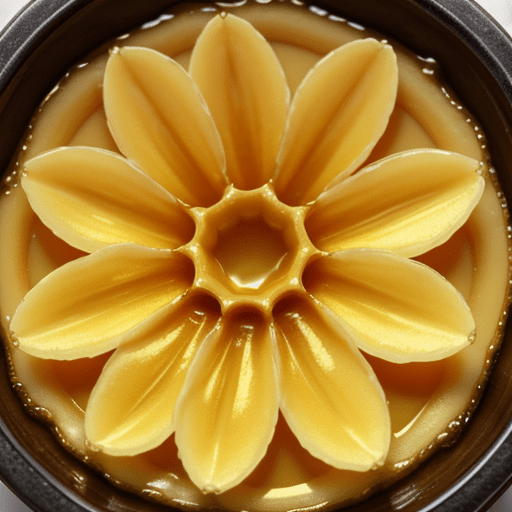
FAQ’s
How can I sell my beeswax?
- Selling your beeswax can be done through various channels. You can offer it directly to local artisans, crafters, or beekeeping supply stores. Additionally, online platforms and marketplaces provide opportunities to reach a broader customer base.
Is my beeswax of good quality for selling?
- Beeswax quality is determined by factors like cleanliness, color, and fragrance. Ensuring proper beekeeping practices, maintaining a clean hive, and extracting wax correctly will help produce high-quality beeswax suitable for selling.
Are there any legal requirements or regulations for selling beeswax?
- While regulations vary depending on your location, it is crucial to comply with any local or national regulations regarding the production and sale of beeswax products. It is advisable to research and inquire about any permits or labeling requirements specific to your area.
Can I sell beeswax that has been used or contaminated?
- It is generally recommended to sell only clean and unused beeswax. Contaminated or used wax may not meet the quality standards expected by buyers. However, small impurities can often be filtered out, as long as the overall quality remains high.
How do I determine the price for my beeswax?
- Pricing beeswax can depend on several factors, including the purity, color, and scent. Researching the current market prices, considering production costs, and comparing with competitors will help you determine a fair and competitive price for your beeswax.
Are there any certifications or labels that can enhance the value of my beeswax?
- Obtaining certifications such as organic or natural can certainly enhance the value and appeal of your beeswax products. Moreover, labels like “100% pure” or “locally sourced” can attract customers looking for specific qualities or supporting local businesses.
